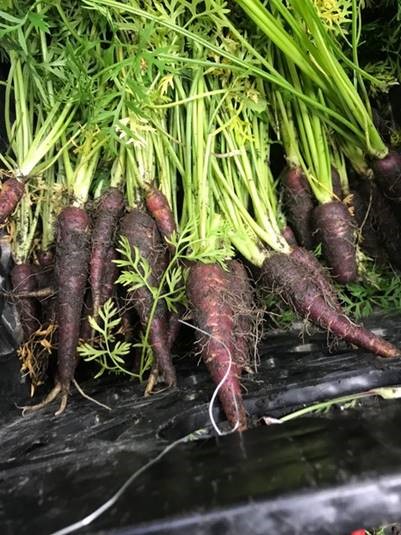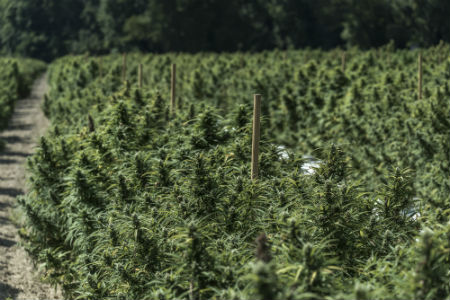
Biotech Center Receives State Grants for Hemp, Carrot Studies

The North Carolina Biotechnology Center has received two grants totaling nearly $200,000 from the N.C. Department of Agriculture and Consumer Services to validate production of purple carrots and ways to improve hemp crops.
The awards were among nine grants totaling nearly $1 million for various projects to boost bioenergy opportunities and crop production in the state. They were awarded by the ag department’s N.C. Bioenergy Research and New and Emerging Crops Initiative.
“These grants will allow us to expand our knowledge of bioenergy practices and crop potential in North Carolina, creating future market opportunities for farmers, agribusinesses and forestry industries,” said Agriculture Commissioner Steve Troxler. “Research will help us develop these types of new opportunities and markets.”
The Biotech Center was awarded $113,523 to study the feasibility of growing a high-yielding purple carrot variety that could yield extracts for the natural food colorant industry. The study will identify top-performing varieties, evaluate the best soil types and growing locations for production, determine the optimal planting and harvest periods, and evaluate colorant quality of top-performing varieties.

The Biotech Center funded a project last winter to obtain preliminary data on carrot production. Researchers at N.C. State University and Tidewater Agronomics will conduct the new research, and the Biotech Center’s Crop Commercialization Program will coordinate the activities.
A second grant to the Biotech Center for $83,931 will support a project to evaluate several biological, organic and conventional fungicides on disease control, yield, and cannabidiol (CBD) oil quality in hemp. Industrial hemp producers in the state have reported significant crop losses due to fungal disease, and current disease-management practices have brought limited success.
Results from this study will be used to support an IR-4 study to obtain fungicide registrations for use in this emerging crop. IR-4, an abbreviation of the Interregional Research Project #4, is a way for land grant universities to provide data for including specialty crops on pesticide labels.

“Our two awards will support multi-researcher collaborations to create opportunities and solve problems in our state’s agriculture industry,” said Paul Ulanch, Ph.D., executive director of the Biotech Center’s Crop Commercialization Program. “This work is consistent with our program’s mission to improve crops, resulting in better agricultural practices, higher profits for growers and added value to agribusinesses throughout North Carolina.”
The Bioenergy Research Initiative supports the research and development of forestry and agricultural based feedstocks for bioenergy production, agribusiness development, and cooperative research for biofuels production. It was created in 2013 when the North Carolina General Assembly allocated funding to support the development of energy production from North Carolina agricultural and forest-based products.
The funding supports staffing, operating expenses and a competitive grant program. The Bioenergy Research Initiative is a part of the Department’s Research Stations Division and is based at the Oxford Tobacco Research Station in Oxford, N.C.
